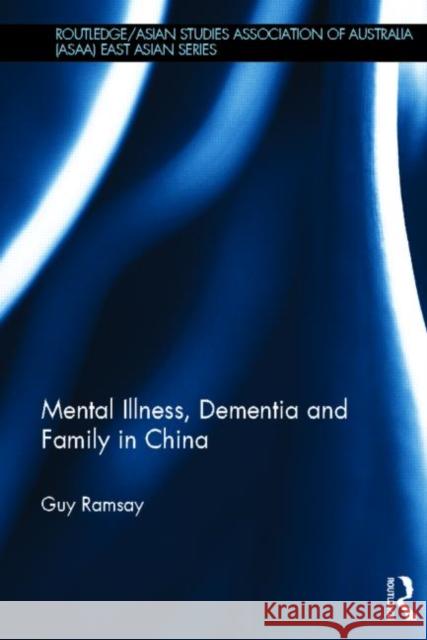Mental Illness, Dementia and Family in China » książka
Mental Illness, Dementia and Family in China
ISBN-13: 9780415810067 / Angielski / Twarda / 2013 / 160 str.
Mental Illness, Dementia and Family in China
ISBN-13: 9780415810067 / Angielski / Twarda / 2013 / 160 str.
(netto: 717,68 VAT: 5%)
Najniższa cena z 30 dni: 705,23 zł
ok. 16-18 dni roboczych.
Darmowa dostawa!
As a consequence of rapid economic progress and increasing life expectancy in East Asian societies such as mainland China and Hong Kong, more attention is being paid by their governments, the media and the academy to mental illness and dementia. While clinical research on mental illness and dementia in Chinese societies acknowledges the importance of culture in shaping people s experiences of these illnesses, how Chinese culture shapes people s understandings of and responses to mental illness and dementia has yet to be interrogated to any depth. Mental Illness and Family Care-giving in China breaks new ground in being the first research monograph to examine this issue. The book explores how Chinese culture, namely, the understandings, norms, values and scripts that people acquire through being members of a Chinese community, shapes contemporary stories of mental illness and contemporary stories of family caregiving in dementia.
The book is innovative in examining and comparing stories of mental illness and stories of family caregiving in dementia which have been drawn from both real life ( life stories ) as well as from film and television productions ( filmic stories ). There is an essential complementarity between these two kinds of stories, with life stories generally presenting an insider s account and filmic stories generally presenting an outsider s account. What remains unvoiced in one kind of story may be voiced in the other kind. The book draws on the perspectives and analytic approaches provided by narrative analysis and cultural studies to identify the ways in which culture shapes these stories. Particular attention is given to the temporal and causal ordering of life events in the stories, the claiming and refashioning of identities by those suffering from illness and their family caregivers, and the forms of language used. The book presents the analysis and study findings in a way that maintains relevance and accessibility for those whose professional and personal responsibilities bring them into contact with Chinese people facing mental illness and family caregiving in dementia.











